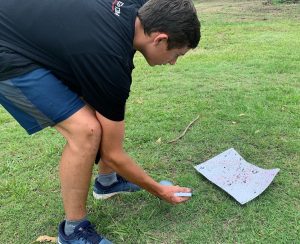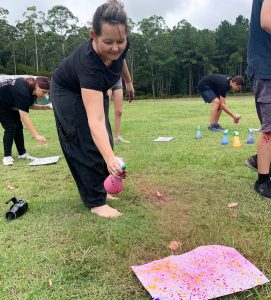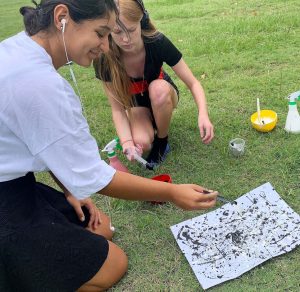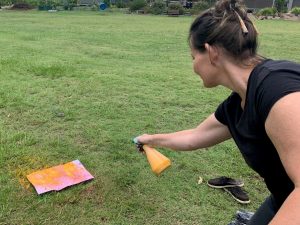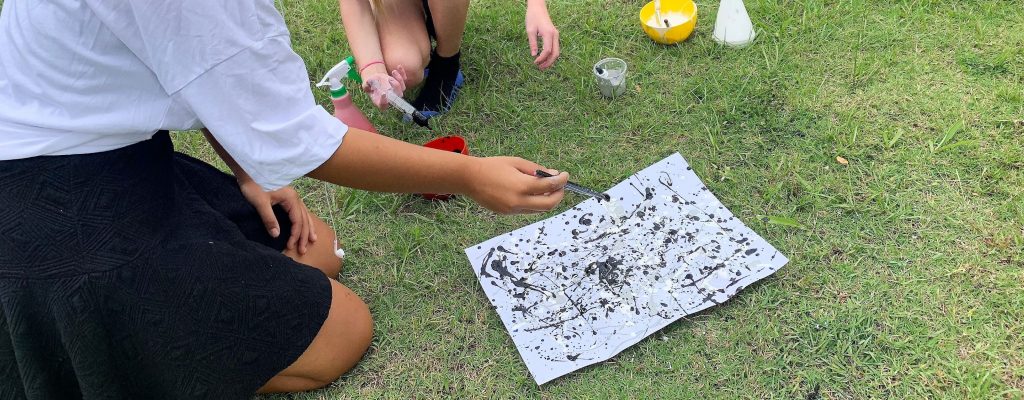This week our Year 10 art students learnt about renowned American artist Jackson Pollock, who was widely noticed for this technique of pouring or splashing liquid household paint onto a horizontal surface, enabling him to view and paint his canvases from all angles.
Known as an ‘action painter’, his abstract impressionism was reproduced by our students who went outside to experiment with different ways of applying paint. From canvas droppers, to syringes to spray bottles and even water balloons with paint in them – and anything else the students could think of – they experienced first-hand what it feels like to challenge the Western tradition of using easel and brush, instead using the force of their whole body to paint.
Dr Montessori considered culture, arts and music to be one of the fundamental ”spiritual” needs of humans (a typical Montessori lesson in the primary years, usually following The Story of the Coming of Humans) along with love, spirituality/religion, and vanitos (self-adornment). In addition to spiritual needs, she wrote that we humans also have “material” needs such as shelter, food, clothing, transportation, defense (safety, protection) and communication.
The understanding that all humans, across the ages and continents, share the same needs, can help to connect us no matter what language we speak, what era we are living in or how old we are. Art, in particular participating in art, is considered a fundamental aspect of creative expression at MIC as the focus is on the process, not the product.
“If we try to think back to the dim and distant past…what is it that helps us reconstruct those times, and to picture the lives of those who lived in them? It is their art…It is thanks to the hand, the companion of the mind, that civilization has arisen,” – Dr Maria Montessori, The Absorbent Mind
